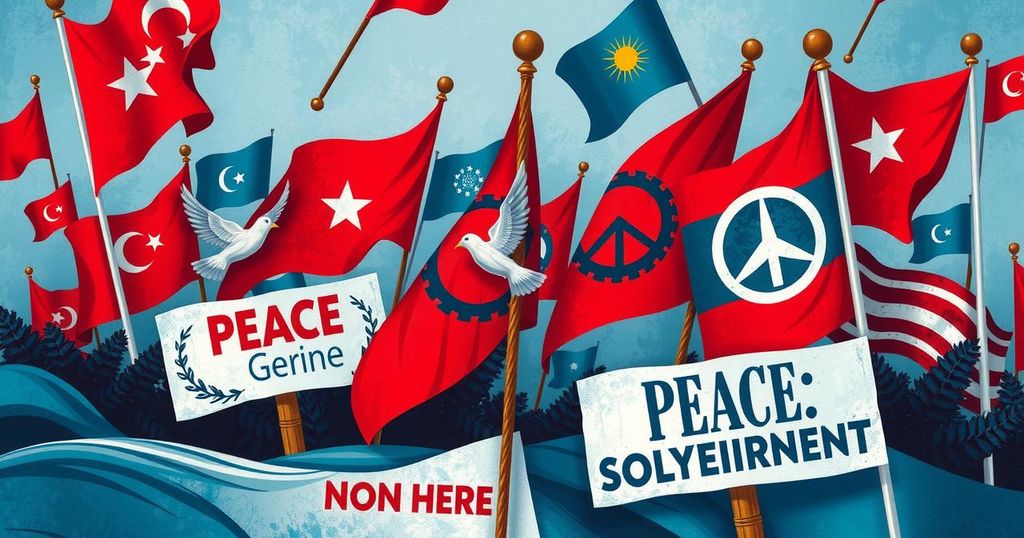- Kwesi Pratt Jnr. claims Zelenskyy undermines Ghana’s Non-Aligned policy.
- He warns against Zelenskyy’s potential influence over Ghanaian politics.
- Pratt questions the practicality of financing drone production in Ghana.
- Controversial Ukrainian Embassy actions raise alarm about press integrity.
- Pratt urges protection of Ghana’s sovereignty against foreign manipulation.
Kwesi Pratt criticizes Zelenskyy’s motives in Ghanaian politics.
Kwesi Pratt Jnr., a prominent Pan-Africanist and member of the Socialist Movement of Ghana, has made headlines with a striking assertion that Ukrainian President Volodymyr Zelenskyy is meddling in Ghanaian affairs. Pratt claims Zelenskyy is deliberately trying to erode the Non-Aligned foreign policy championed by Ghana’s founding figure, Dr. Kwame Nkrumah. In a frank piece published in The Insight on July 17, 2025, he cautions his fellow Ghanaians not to let the desperate leader import his conflicts into their nation, suggesting Zelenskyy’s true intentions could be far from beneficial.
Allegations of foreign influence on Ghana’s policies emerge.
Pratt’s article further details a telephone conversation Zelenskyy supposedly initiated with Ghana’s former President, John Dramani Mahama. This conversation appears to have revolved around projects that former leaders had agreed to pursue. Notably, Pratt highlights that Mahama has not explicitly backed Ukraine’s position, unlike former President Nana Akufo-Addo. Instead, Mahama has advocated for a ceasefire and a negotiated settlement of the ongoing conflicts, which Pratt insinuates puts Mahama at odds with Zelenskyy’s agenda.
Concerns grow over Ghana’s potential support for Ukraine.
Another concerning point raised by Pratt is the engagement of the Ukrainian Embassy in Ghana, which he asserts is attempting to draw the country into the Ukrainian conflict with Russia. Highlighting a particular post made by Zelenskyy, which mentioned Ghana’s interest in Ukrainian technologies and drone production, Pratt is skeptical of the practicality of such an arrangement given Ghana’s economic challenges. He stresses, “What can be the sense in financing Ukraine’s production of drones when Ghana is unable to pay its power sector debt of US$3.7 billion?” His remarks point toward substantial skepticism about any partnership that could further drain Ghana’s already struggling economy.
Pratt questions border security proposals and regional trust.
Pratt does not hold back in stating the fears that accompany Zelenskyy’s propositions for Ghana, especially regarding border security. He poses critical questions about the ramifications of potentially allowing Ukrainian security forces to operate along Ghana’s borders, cautioning against the misunderstandings this might create with leaders of neighboring countries like Mali and Burkina Faso, highlighting the sensitive nature of such military claims. Furthermore, he notes the past assistance Ukraine has received internationally, arguing that they are unlikely to be in a position to address Ghana’s domestic issues effectively.
Pratt warns against foreign interference in Ghana.
Ultimately, Kwesi Pratt Jnr. urges a renewed commitment to Ghana’s Non-Aligned policy, emphasizing resistance to foreign pressures that do not align with the country’s interests. He cautions, “Zelenskyy must be stopped from exporting the chaos in Ukraine to Ghana,” pointing out that the fallout from his strategies could have detrimental effects on national sovereignty. In a world increasingly interconnected, Pratt warns of the risks that come when foreign leaders seek to influence a nation’s agenda through manipulation or perceived partnership.
In conclusion, Kwesi Pratt Jnr. raises critical concerns about Ukrainian President Zelenskyy’s alleged attempts to leverage Ghana for his own political endeavors. He highlights the risks posed to Ghana’s Non-Aligned foreign policy and the troubling implications of perceived foreign interference in domestic affairs. As Ghana navigates its own economic challenges, the call for vigilance against these external influences becomes ever more pressing.






